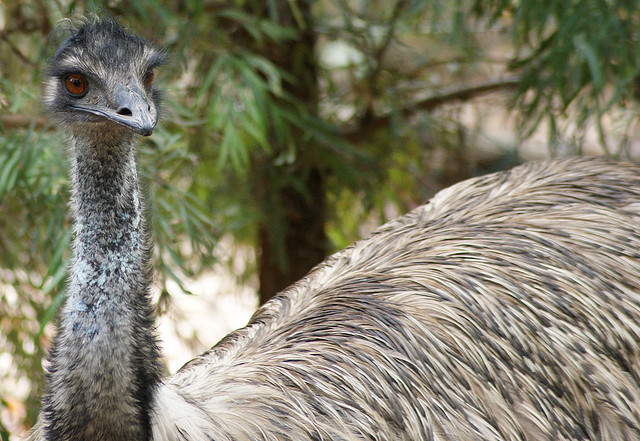Weird Science figures out why it lost its penis
Ars Technica » Scientific Method 2013-06-08

The curious case of the vanishing penis. "One of the most puzzling events in evolution is the reduction and loss of the phallus in birds." Puzzling indeed. Although birds' ancestors started out with a penis, it was lost by all but about three percent of the bird species currently alive on the planet. Although we're still arguing over why, we we now know how the penis goes missing. And it comes, in part, by methodology that I never thought I'd see in a scientific paper: an examination of the genitalia of emus, which do have penises (as do ducks).
Chickens, however, do not. And the difference all comes down to one protein. All birds seem to form a bit of tissue that has the potential to generate a penis, but chickens activate a gene called BMP-4, which kills off the tissue; emus and ducks don't activate that gene. Somewhat intriguingly, BMP signaling is also responsible for killing off the tissue that would otherwise leave us with webbing between our digits.
There are scientists in foxholes. When people are under stress, they tend to rely on whatever it is they believe in. Until recently, that typically meant traditional religion. But, with a general decline in belief, what have people turned to? Possibly science, if a new study is to be believed. Researchers created a series of questions that measured people's belief that science makes sense of the world and can improve the human condition. The then administered it to a bunch of rowers, some before an important competition (not exactly a military battle, but those haven't happened near Oxford in a while), others before a practice session. Those facing an important competition tended to place a much higher value on science than their peers who were just in for practice.
Read 4 remaining paragraphs | Comments